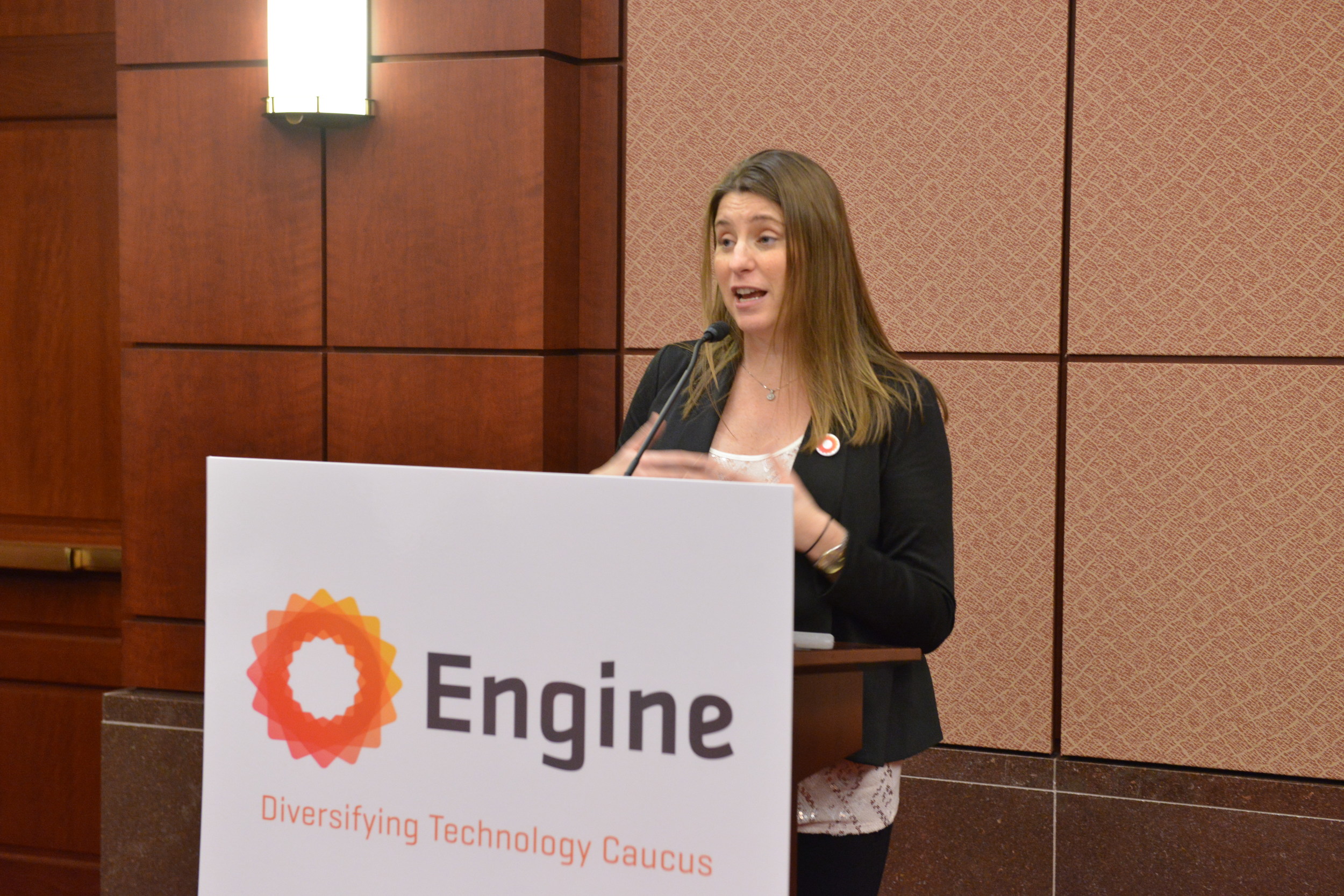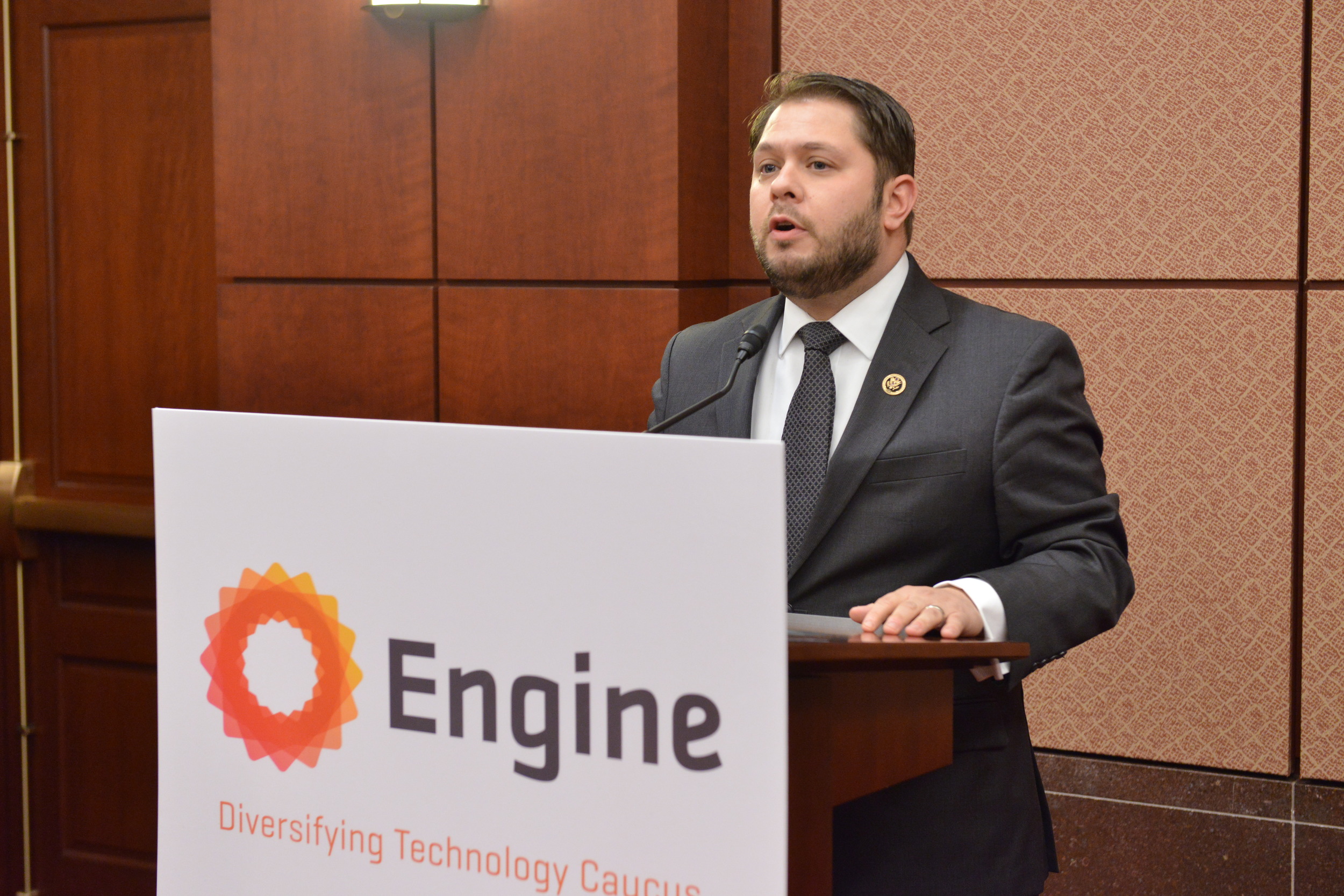Tonight’s State of the Union proved to be something of a mixed bag for the startup community. Which was a bit surprising, because over the past few weeks President Obama has previewed a number of new tech-related proposals. This was a natural move for a President seeking to highlight the nation’s economic recovery, as the tech industry—and particularly startups—are driving our economic recovery and are responsible for all net new job growth in the United States.
The President’s speech did touch on some of those proposals, such as improving access to broadband and a highly educated workforce. But other important issues, like net neutrality, received only passing mention. And some topics, like patent reform, were missing from the speech altogether.
Here’s a look at what startups heard—or didn’t hear—in this year’s State of the Union.
Community Broadband
"21st century businesses need 21st century infrastructure — modern ports, stronger bridges, faster trains and the fastest internet.
I intend to protect a free and open internet, extend its reach to every classroom, and every community, and help folks build the fastest networks, so that the next generation of digital innovators and entrepreneurs have the platform to keep reshaping our world."
Last week the President spoke in more detail about his plans to expand high-speed internet access in communities across the country. These plans include calling on the FCC to overturn limitations on community broadband, technical support to municipalities that are interested in creating their own broadband networks, and a package of grants and loans to incentivize rural broadband providers.
This is especially exciting news for burgeoning startup communities in areas where ISPs have so far failed to invest. We’ve already seen the impact that community broadband has made in places like Chattanooga, TN, Wilson, NC, and Danville, VA. Ultra high-speed broadband networks help attract startup activity to take advantage of the fast connections, which in turn drives consumer demand and ultimately, more investment in broadband infrastructure. The better the Internet infrastructure a community has, the more attractive that community is to new startups and the good jobs they create.
Access to Talent
"That’s why I am sending this Congress a bold new plan to lower the cost of community college — to zero.
We’re connecting community colleges with local employers to train workers to fill high-paying jobs like coding, and nursing, and robotics..."
One of the greatest challenges for the startup community is accessing a steady stream of talented people with ideas for new businesses and the skills needed to grow those businesses. Improving STEM education is critical if we’re going have future generations of homegrown talent.
Last week President Obama announced a package of higher education proposals that included making community college free for students across the country, and expanding technical training programs that provide skills tailored to in demand jobs. While many of the details of these proposals are still forthcoming, we’re optimistic that they will expand both access to and quality of STEM education, and we urge the White House to include the startup community in designing the details of implementation.
"Yes, passions still fly on immigration, but surely we can all see something of ourselves in the striving young student, and agree that no one benefits when a hardworking mom is taken from her child, and that it’s possible to shape a law that upholds our tradition as a nation of laws and a nation of immigrants."
The other piece of the puzzle when it comes to accessing talent is reforming our immigration system, so that foreign born entrepreneurs can come here, start a business here, and create jobs here. We’ve heard less about immigration reform from the President in the days leading up to the State of the Union, but the Executive Order he issued in November took a number of key first steps towards reform.
Among other provisions, the Executive Order expands immigration options for foreign-born entrepreneurs and makes it easier for high-skilled workers awaiting Lawful Permanent Resident status to change jobs. While these changes are important, the executive action did not raise the visa supply, something that’s been a priority for the tech community for years and requires legislative action. We also need to establish a true founder’s visa, so that entrepreneurs can come to the United States to start new ventures, rather than being tied to a job with an existing employer.
Data and Security
"Tonight, I urge this Congress to finally pass the legislation we need to better meet the evolving threat of cyber-attacks, combat identity theft, and protect our children’s information. If we don’t act, we’ll leave our nation and our economy vulnerable. If we do, we can continue to protect the technologies that have unleashed untold opportunities for people around the globe.
While some have moved on from the debates over our surveillance programs, I haven’t. As promised, our intelligence agencies have worked hard, with the recommendations of privacy advocates, to increase transparency and build more safeguards against potential abuse. And next month, we’ll issue a report on how we’re keeping our promise to keep our country safe while strengthening privacy."
The President has announced a package of proposals around data and security, including legislation that would enhance information sharing between the private sector and government agencies, expanded powers for law enforcement to combat data theft, and expanded reporting requirements around data breaches.
As more and more business migrates to the Internet, it is vitally important that consumers have confidence that the information they are sharing with online businesses is secure and private while the regulatory climate also remains ripe for innovation. Revelations about the NSA’s surveillance activity may cost the cloud computing industry billions of dollars as consumers refrain from using services they perceive to be unsecure. There is, of course, a balance that must be achieved between rules that adequately safeguard consumer information and those that impose unduly burdensome obligations on startups without providing any meaningful security or privacy benefit for users.
The startup community looks forward to being part of this ongoing conversation, and working towards smart, manageable regulation that allows for both strong consumer protections and continued business expansion and job growth.
Other Proposals
"My plan will make quality childcare more available, and more affordable, for every middle-class and low-income family with young children in America — by creating more slots and a new tax cut of up to $3,000 per child, per year.
So I’ll be taking new action to help states adopt paid leave laws of their own. And since paid sick leave won where it was on the ballot last November, let’s put it to a vote right here in Washington. Send me a bill that gives every worker in America the opportunity to earn seven days of paid sick leave. It’s the right thing to do."
While access to affordable childcare and parental leave may not sound like tech policies, they are in fact critical to creating an environment where Americans of any age and background have the ability to take a chance on a new idea or a new startup. They’ll also help make sure that a diverse cross section of Americans has the opportunity to go to work, which will in turn help spur much needed diversity within job sectors like tech.
What Was Left Unsaid
Net Neutrality
President Obama has been a vocal supporter of reclassifying broadband Internet under Title II of the Communications Act. However, tonight’s speech featured just a passing hat tip to protecting an open Internet.
Strong net neutrality rules are essential for the future of entrepreneurship in this country. If ISPs are allowed to extract fees from companies that can afford to pay for faster delivery of their content, it would create a nearly insurmountable disadvantage for the new startups that are driving new job growth.
Tonight’s speech comes less than 24 hours before major Congressional hearings on net neutrality, and just a few short weeks before the FCC is set to introduce new rules on the subject. Opponents of an open Internet are mobilizing for a last ditch effort to undermine meaningful net neutrality. That’s why in the days ahead you’ll see the startup community continue to rally against proposed legislation that would provide net neutrality in name only, and work to ensure the FCC takes action that will preserve an open Internet for generations to come. We hope we’ll continue to see more leadership from the President on this issue.
Patent Reform
Patent trolls remain one of the biggest threats to startups, forcing many growing companies to choose between hefty legal fees or baseless settlements. It’s a problem President Obama acknowledged in last year’s State of the Union when he said, “Let’s pass a patent reform bill that allows our businesses to stay focused on innovation, not costly, needless litigation.” That reform legislation came very close to passing last session before ultimately dying in the Senate.
With a change in Senate leadership, many of us in the startup community are optimistic about significant movement on patent reform. So we were disappointed to see the President avoid the topic entirely in this year’s speech. While we’re confident that he remains committed to reform, we hope to see him more aggressively pushing for legislation in the weeks to come.
Looking Ahead
"Some of our bedrock sectors, like our auto industry, are booming. But there are also millions of Americans who work in jobs that didn’t even exist ten or twenty years ago — jobs at companies like Google, and eBay, and Tesla."
Overall, the President clearly acknowledged the growing importance of the tech industry to both our economic recovery and to the daily lives of every American. But while he shouted out some of the biggest success stories in the tech community, he failed to mention that not that many years ago, these companies were all startups. And the startups of today will be the success stories and the job creators of tomorrow.
Overall, compared to some previous years, tonight’s State of the Union was a bit light on tech policy. But considering the President’s recent leadership—along with the leadership from members of both parties on the Hill—on a number of issues critical to the future of the tech industry, it’s easy to remain optimistic about our potential for real victories this year.
With FCC action on the horizon, the startup community will be focused intensely on net neutrality in the weeks ahead. At the same time, we’ll be working to make sure that startup voices are heard on topics ranging from immigration to patent reform. And we’ll maintain pressure on the President and on lawmakers in both parties to support innovation and opportunity for everyone.























